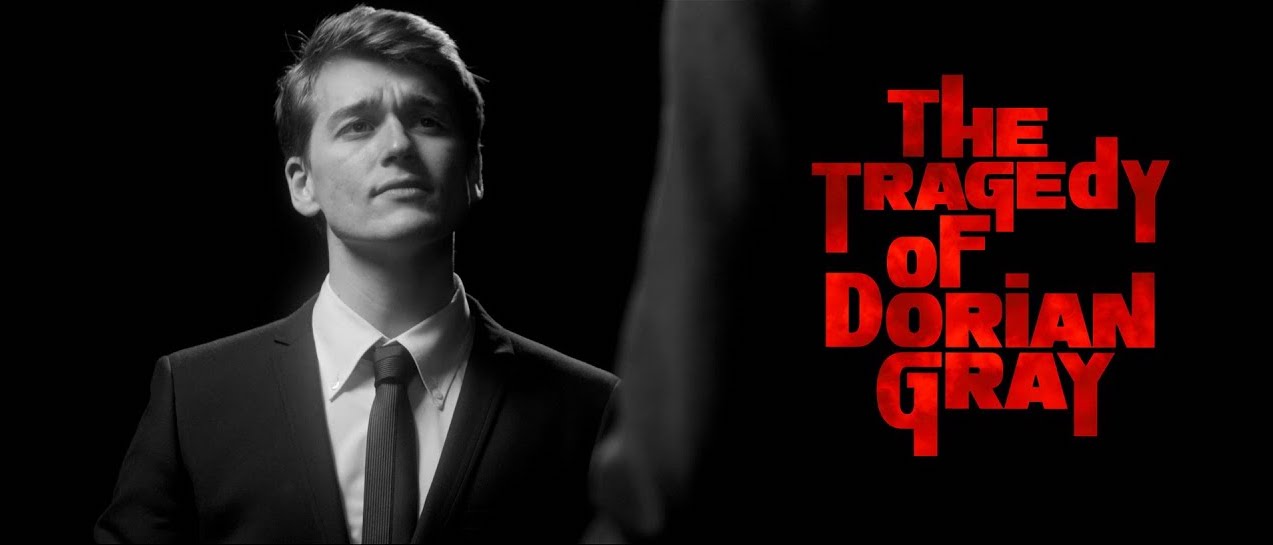The classic tale of Dorian Gray by Oscar Wilde was given a generational makeover and brought to life by Blue Devil Productions at Brighton Fringe. Set in the swinging sixties rather than the nineteenth century, it is still tinged with its undertones of gothic horror, lust and ego.
Maximus Polling plays the effervescent Dorian Gray, whose magnetism casts a spell over everyone he meets. With a promising career as a musician, and a beautiful, successful wife Cybil (played superbly by Tara Clark), his charming good looks and charisma make men and women swoon. As soon as he is introduced to the arts scene in London, his eyes are opened to another world, and artist Basil Hallward (Christopher Sherwood) who is normally fixated on creating disturbing, controversial images of young men, is bewitched by Gray’s good looks and asks him to sit for him. It doesn’t take Gray long to agree, as his vanity is larger than he thinks, and this is the seed of his downfall. Although we never see the result, we are led to believe it is seminal, and it mesmerises everyone who sees it. Kace Monney (as sleazy agent Harry Wotton) has also been overwhelmed by Gray’s beauty, and when he claps eyes on the seductive painting, he shapes a master plan that will elevate Gray to the highest level of celebrity and influence- however, it will come with a sacrifice.
With only six characters who slip in and out of eachothers lives, the play continues on a heady journey through the seedy clubs of Soho resulting in a tale of excess, vanity and sexuality and Conor Litten as Alan Campbell and Heather Alexander as Mavis Ruxton are essentially gossipping narrators of the media circus who propel the play on.
Whilst Gray’s life is booming, his wife, Sybil Vane is addressing her own demons, and is beginning to realise that her passion for Gray might be misjudged as he is on a selfish mission to succeed. Decades pass and Gray’s ego is the only thing that is guiding him, without a care about anyone but himself. Rather than ageing with his hedonistic activities, he retains his youthful good looks and they still magnetise all those around him. However his youth is his downfall as his narcissism is exaggerated because he sold his soul to the devil. His quest for fame, vanity and lust obliterates those around him, and even heartbreak, betrayal and murder can’t stop his need for success. Without any loyalty to retain relationships, Gray, embodied in a 21 year old body, abuses and corrupts those around him, whilst his portrait which is his real self is slowly disintegrating. Having destroyed Alan Campbell (Conor Litten)- the once rational man turned into a suicidal wreck after spending an illicit night of passion with Gray, his own wife commits suicide as she sees herself as a failure.
As an interpretation of the original book, Basil remains a hero, and it is his obsessive infatuation with Gray that propels the story to it’s bitter end. Like most of the other characters he is totally beguiled by Dorian’s beauty but he doesn’t really recognise or even comprehend the monster that lurks within until it’s too late and provides a gripping climax.
For more information on The Tragedy of Dorian Gray see online.

